AT&T and Verizon Just Gave This Major Update Amid Safety Concerns
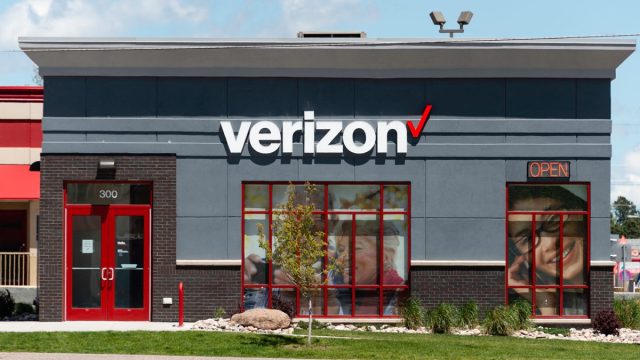
Phone carriers have been gearing up for a major change this year. Along with other large U.S. mobile providers, AT&T and Verizon are planning to phase out their 3G networks completely in 2022 as they initiate the rollout of 5G services. And while many consumers are eager for this new, faster iteration of wireless technology, some officials are not as ready.
U.S. flight regulators have warned that the implementation of 5G could create severe complications for air travel. So now, amid these safety concerns, AT&T and Verizon just gave a major update on their plans for the service in the new year. Read on to find out what these two phone companies will do now.
RELATED: If You Use Your iPhone to Do This, Check Your Bank Account, Experts Warn.
AT&T and Verizon have delayed the rollout of their 5G networks.
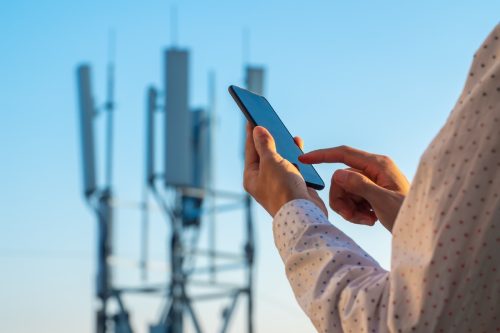
Both AT&T and Verizon have announced that they will postpone their 5G rollout for two weeks following concerns about how the new wireless technology will affect air travel. Transportation Secretary Pete Buttigieg and Steve Dickson, head of the Federal Aviation Administration (FAA), sent a joint letter on Dec. 31, requesting that both phone companies delay the start of their 5G wireless service, per Bloomberg. According to Buttigieg and Dickson, it could pose a safety risk to airlines by creating “widespread and unacceptable disruption” to aircraft electronics.
Now, the two phone companies plan to implement 5G starting Jan. 19, says Insider. “We’ve agreed to a two-week delay, which promises the certainty of bringing this nation our game-changing 5G network in January,” a Verizon spokesperson told the news outlet.
This is not the first time they have postponed the release of their 5G technology.
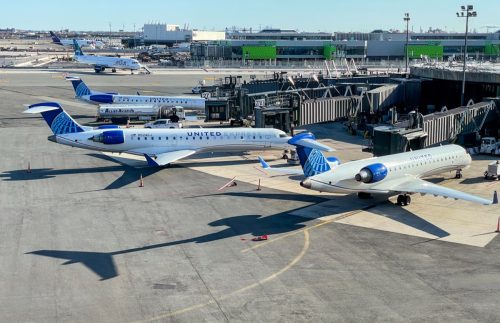
The battle between telecommunication companies and flight regulators has been ongoing for some time now. AT&T and Verizon were originally planning to roll out their 5G networks on Dec. 5, according to The Wall Street Journal. But after concerns from the FAA, the two phone providers agreed in early November to delay their planned deployments until Jan. 5, according to Bloomberg.
Experts say this one-time delay wasn’t likely to significantly affect AT&T and Verizon—who spent tens of billions of dollars to buy licenses for 5G airwaves—as they had already planned for a gradual pace of 5G infrastructure updates. But the longer delays could cause significant strain for the two companies, where a number of users have already upgraded to 5G-capable smartphones.
“A month doesn’t make that much of a difference,” Harold Feld, a telecom industry specialist at Public Knowledge, told The Wall Street Journal. “What makes a difference is when it starts to look indefinite. Then you get to a situation where a whole investment cycle gets blown up.”
RELATED: For more technology news delivered straight to your inbox, sign up for our daily newsletter.
AT&T and Verizon had initially denied the most recent delay request.
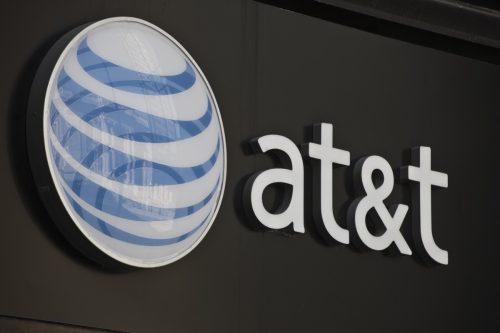
Originally, AT&T and Verizon had rejected Buttigieg and Dickson’s request in a letter sent by AT&T CEO John Stankey and Verizon CEO Hans Vestberg on Jan. 2. “On the evening of New Year’s Eve, just five days before the C-Band spectrum will be deployed, we received your letter asking us to take still more voluntary steps—to the detriment of our millions of consumer, business, and government customers—to once again assist the aviation industry and the FAA after failing to resolve issues in that costly 30-day delay period, which we never considered to be an initial one,” the letter read, per Insider.
But both companies ended up reversing their position on Jan. 3. “The FAA thanks AT&T and Verizon for agreeing to a voluntary delay and for their proposed mitigations,” Matthew Lehner, an FAA spokesman, said in a statement to The New York Times. “We look forward to using the additional time and space to reduce flight disruptions associated with this 5G deployment.”
The phone companies will ultimately move forward with their 5G service.
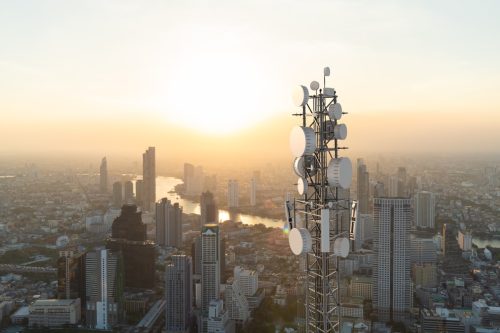
Despite any concerns, both phone companies still stand behind the new technology. According to The New York Times, AT&T and Verizon have built their 5G network using radio signals that flight regulators are worried could disrupt devices that pilots use to land planes in poor weather, called radio altimeters. Alongside the newest delay, the two companies have offered to run their 5G equipment at a lower power for six months to address signal concerns and plan to reduce the strength of 5G signals around airports. Neither has agreed to nix plans for the new wireless technology altogether.
“We know aviation safety and 5G can co-exist and we are confident further collaboration and technical assessment will allay any issues,” an AT&T spokesperson told Insider. According to the news outlet, both Stankey and Vestberg noted in their letter that 5G services already exist in 40 countries where it “has been deployed without any negative impact on aviation.”
RELATED: If You Get This Message from T-Mobile, Delete It Immediately, Experts Say.